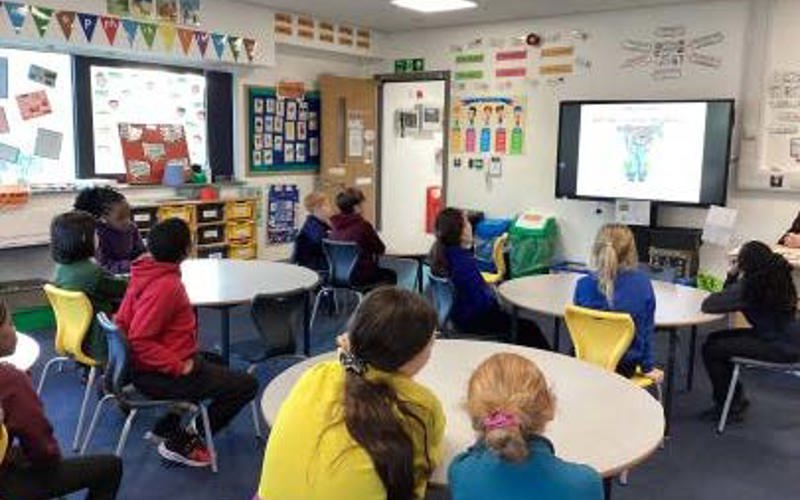Education
Largest ever global air sampling maps fungal spread

MUSHROOMS and other fungi spread their spores in a more localised way than once thought and more similar to how animals and plant species migrate, new research has found.
Published in the journal Nature, it is the largest ever global air sampling project and analyses how the climate affects the growth and spread of fungi.
The study used air samplers to collect airborne fungal spores at 47 locations on every continent apart from Antarctica over a two-year period.
Most fungi spread by releasing airborne spores and detection of these spores with air sampling can tell us when they are released and how far they travel.
Mapping of the global distribution of fungi can establish the ecological ranges of rare or threatened species to be observed. This allows us to detect changes in these patterns caused by climate change or habitat destruction.
It also means the spread of fungi which are potentially harmful to humans or crop plants can be monitored.
Fungi are essential to how ecosystems work but they are mostly invisible to the naked eye, so the factors determining their distribution and activity remain poorly understood.
It is estimated that there could be up to five million different species but most of these remain unknown.
For decades scientists debated which factors drive the distribution of fungi and other microbes.
It was originally believed that the long distance dispersal of fungi in the air meant they could reach all parts of the planet, but would only grow in suitable conditions.
This contrasts with animals and plants whose spread is more strictly limited by mountain ranges, seas and other geographical barriers.
However, the new research paper shows that the spread of fungi, like animals and plants, is determined by climatic factors, and that they too are distributed locally, not only in where they grow but in how their spores are spread.
Professor Gareth Griffith from the Department of Life Sciences at Aberystwyth University said: “Sampling of airborne DNA in the way we have for this study is a huge step forward in the understanding of the how fungi grow and disperse in different parts of the world. Overall, our results suggest that the factors that affect where microbes live and grow are similar to those determining the distribution of plants and animals.
“The very diverse kingdom of fungi follows globally highly predictable patterns. These patterns resemble those described for other major groups of organisms. This research makes a major contribution to that long-standing debate.”
The study found that species of airborne fungus found in different regions was most strongly affected by the mean annual air temperature of the site, with diversity and numbers increasing from the poles towards the Equator.
The results also confirms that temperature influences fungal reproduction and that spore release peaks when the wind speeds are high.
Professor Gareth Griffith from Aberystwyth University added:“Our results highlight the role of temperature as an underlying driver of fungal dispersal, with fungal diversity increasing with warmer climates and more spores being released on warmer days. This finding suggests that global climate change, and generally warming climates, will have a major role in restructuring fungal communities.
“Although previous large-scale studies of soil fungi have found clear effects of the climate on community composition, the fact that air temperature explains most of the variation in the distributions of fungi in our data is striking.”
Speaking about the significance of the air sampling, Academy Research Fellow Nerea Abrego, from the University of Jyväskylä in Finland, said:
“Air is a real treasure trove for nature research; it is full of DNA from plants, fungi, bacteria, insects, mammals and other organisms. This knowledge is essential not only to understand where and when different fungal species thrive, but also to predict their fate under the ongoing global change.
“One particularly interesting subject for further research is a more detailed review of the sequences for fungi that are important to humans. These include fungal diseases of humans, crops and production animals, as well as fungi that indicate the progress of the loss of nature and the weakening of natural ecosystem processes.”
The Global Spore Sampling Project was funded through a number of bodies, including the UK Natural Environment Research Council.
Education
Family warns school move could harm child with ultra-rare condition

As closure looms, campaigners say Meidrim pupils thrive in ‘caring community’ as council consultation raises fears for vulnerable learners
A SMALL village primary school at the heart of rural Carmarthenshire is at the centre of a growing campaign to prevent its closure, with supporters warning that vulnerable children could suffer serious consequences if it shuts.

The Cymdeithas yr Iaith has backed efforts to secure the future of Ysgol Bentre Gymraeg Meidrim, describing small rural schools as “caring communities” that provide vital stability for children with additional needs.
At the centre of the case is pupil Tommy Webber, who lives with Bloom Syndrome — an ultra-rare genetic condition which causes complex medical issues and additional learning needs. He is believed to be the only child in Wales diagnosed with the condition.
Medical professionals have advised the school that continuity, routine and trusted relationships are essential for Tommy’s wellbeing. Any disruption — including changing schools, longer daily travel or unfamiliar staff — could have a negative impact on his health, emotional security and educational progress.
Supporters say the small, close-knit nature of Meidrim has allowed staff to provide consistent, personalised care that would be difficult to replicate elsewhere.

However, Carmarthenshire County Council opened a statutory consultation on Thursday (Jan 16) on proposals to close the school, prompting concern from parents, campaigners and language groups.
Speaking on behalf of the Carmarthen region, Cymdeithas yr Iaith representative Sioned Elin said Tommy’s experience reflects a wider truth about the role of small rural schools.
“Tommy’s story shows how a small school can be a safe haven for children with additional needs,” she said. “Education here is genuinely child-centred, and pupils are supported as part of a caring Welsh-speaking community.
“In the same school there is also a deaf pupil, and the other children have learned some sign language so they can communicate with her. That demonstrates how this kind of environment benefits every child, not just one.”
She added that decisions about closures should not be based solely on budgets or pupil numbers.
“The impact cannot be measured purely in financial terms. The question must be whether any alternative provision can truly meet the needs of children who rely on stability and familiarity every day.”
Campaigners argue that losing the school would not only affect education standards but would also weaken the Welsh language and the social fabric of the village.
A supporting letter from hospital clinicians has been submitted as part of the consultation process.
Residents are now urging the council to recognise the wider value of small rural schools before making a final decision.
Education
Language commissioner launches probe into school closure impact on Welsh

THE WELSH Language Commissioner has launched a formal investigation into claims that the proposed closure of a rural Carmarthenshire primary school did not properly assess the impact on the Welsh language.
Campaign group Cymdeithas yr Iaith confirmed this week that the Welsh Language Commissioner will examine whether Carmarthenshire County Council complied with its legal duties when producing a language impact assessment linked to plans to close Ysgol Llansteffan.
The council issued a statutory notice last year proposing to shut the village school at the end of the summer term as part of wider education reorganisation. A final decision had been expected this spring.
However, the investigation now creates fresh uncertainty over the timetable.

Complaint over ‘insufficient assessment’
Cymdeithas yr Iaith says it submitted a formal complaint arguing that the council failed to produce a sufficiently detailed assessment of how the closure could affect Welsh-medium education and the wider Welsh-speaking community.
The group claims the authority selectively used data to support closure rather than examining all available evidence objectively.
Two key concerns were raised.
Firstly, campaigners argue there may not be enough places in neighbouring Welsh-medium schools to accommodate pupils from Llansteffan and nearby housing developments, potentially forcing some families into English-medium provision.
Secondly, they say the assessment did not meaningfully consider the school’s role as a community hub or explore ways the site could generate income and support local Welsh-language activities.
On behalf of local members, Ffred Ffransis said: “There will not be places for all the Llansteffan children, nor for the children of the new housing estates, in other Welsh-medium schools in the area.
“The most cost-effective way of providing sufficient places locally in Welsh-medium education is by keeping open Ysgol Llansteffan and making better use of the buildings, including environmental education and community use.”
Formal investigation
In a letter to the group, the commissioner confirmed an investigation will be held under Section 71 of the Welsh Language Measure to determine whether the council complied with Welsh language standards.
The probe could take up to three months.
Campaigners believe this may delay implementation of the closure and could require the council to revisit its assessment and potentially carry out a fresh statutory consultation.
Ffransis said: “Even if the council now decided to make a full and meaningful assessment, there would likely have to be a new consultation. The original decision may have been taken on a faulty basis.”
He added that similar concerns had been raised about language impact assessments connected to other proposed school closures in the county.
Council position
The council has previously said that school reorganisation proposals are driven by falling pupil numbers, financial pressures and the need to ensure sustainable, high-quality education.
Authorities across Wales have faced difficult decisions in recent years as rural rolls decline and building maintenance costs rise.
It is expected the council will respond formally to the commissioner’s investigation in due course.
What happens next
If the commissioner finds that language standards were not properly followed, enforcement steps could be taken and the process delayed or revisited.
For families in Llansteffan, the outcome may determine whether their local Welsh-medium school remains open beyond the summer term.
The Herald has contacted Carmarthenshire County Council for comment.
Further updates will follow as the investigation progresses.
Community
Cilgerran Church in Wales school petition to be heard

A PETITION opposing proposed changes for a north Pembrokeshire school is to be heard by councillors later this week.
At last May’s meeting, Pembrokeshire County Council considered a report of the School Modernisation Working Group which outlined the findings of a review of education provision in the Preseli area.
A later July meeting backed a general consultation to discontinue Cilgerran Church in Wales Voluntary Controlled School, and to establish it as a 3-11 community school.
“In particular, the review considered the extent of surplus school places in the area, set against a significant decline in the pupil population,” the council in its consultation has said.
The consultation closed on January 30.
Hundreds have opposed the proposed changes, with a petition, on the council’s own website opposing the changes recently closing after gaining 391 signatures.
Any petition of more than 100 signatures triggers a debate at one of the council’s scrutiny committees, in the case of Cilgerran that debate taking place at Pembrokeshire County Council’s February 5 schools and learning overview and scrutiny committee.
The Cilgerran e-petition, created by Louise Williams, raised concerns including the school could become part of a federation, a loss of permanent head teacher on site, a shared head teacher would have to oversee several schools, loss of funding control and the ability to maintain the school’s current healthy and stable funding, and a loss of commitment to the church, in turn could impact on the school’s and pupils values, beliefs and cultural beliefs.
It said: “Ysgol Cilgerran VC school has strong links with the Church community in Cilgerran and we believe this will have a negative impact on the children who attend the school, the community of Cilgerran and the links between the two.
“We are proud of our school ethos and values which are strengthened by our links with the church. The school has close and strong relationships with our Church in Wales federation governors one of which is also our safeguarding governor.
“Our Church Federation governors work closely with the school and are regular visitors to the school and the children. They provide vital support and guidance to the school and have a positive impact on the Children’s education. We believe these links will be weakened by this proposal to remove our VC status and we believe this is an un-necessary action.”
The proposals for Cilgerran are part of a wide range of potential education changes in the county.
Two petitions, opposing the potential closures of Manorbier and Ysgol Clydau schools, were recently heard at full council and a further petition opposing the potential closure of Stepaside School has recently been launched, which has generated enough support to be heard at a future council meeting.
-

 Crime20 hours ago
Crime20 hours agoSex offender jailed after living off grid in Pembrokeshire and refusing to register
-

 News2 days ago
News2 days agoPrincess of Wales visits historic Pembrokeshire woollen mill
-

 Crime6 days ago
Crime6 days agoPembroke man accused of child sex offences sent to Swansea Crown Court
-

 Health4 days ago
Health4 days agoDoctor struck off after sexual misconduct findings at Withybush Hospital
-

 Crime6 days ago
Crime6 days agoManhunt intensifies after woman seriously injured in Carmarthen park stabbing
-

 Community6 days ago
Community6 days ago50s women threaten legal action over pension compensation refusal
-

 Crime6 days ago
Crime6 days agoDisqualified HGV driver charged after dangerous A40 incident
-

 Business7 days ago
Business7 days agoEight-year prison sentence after vehicle stop uncovers drugs worth over £150,000




























